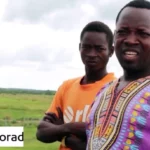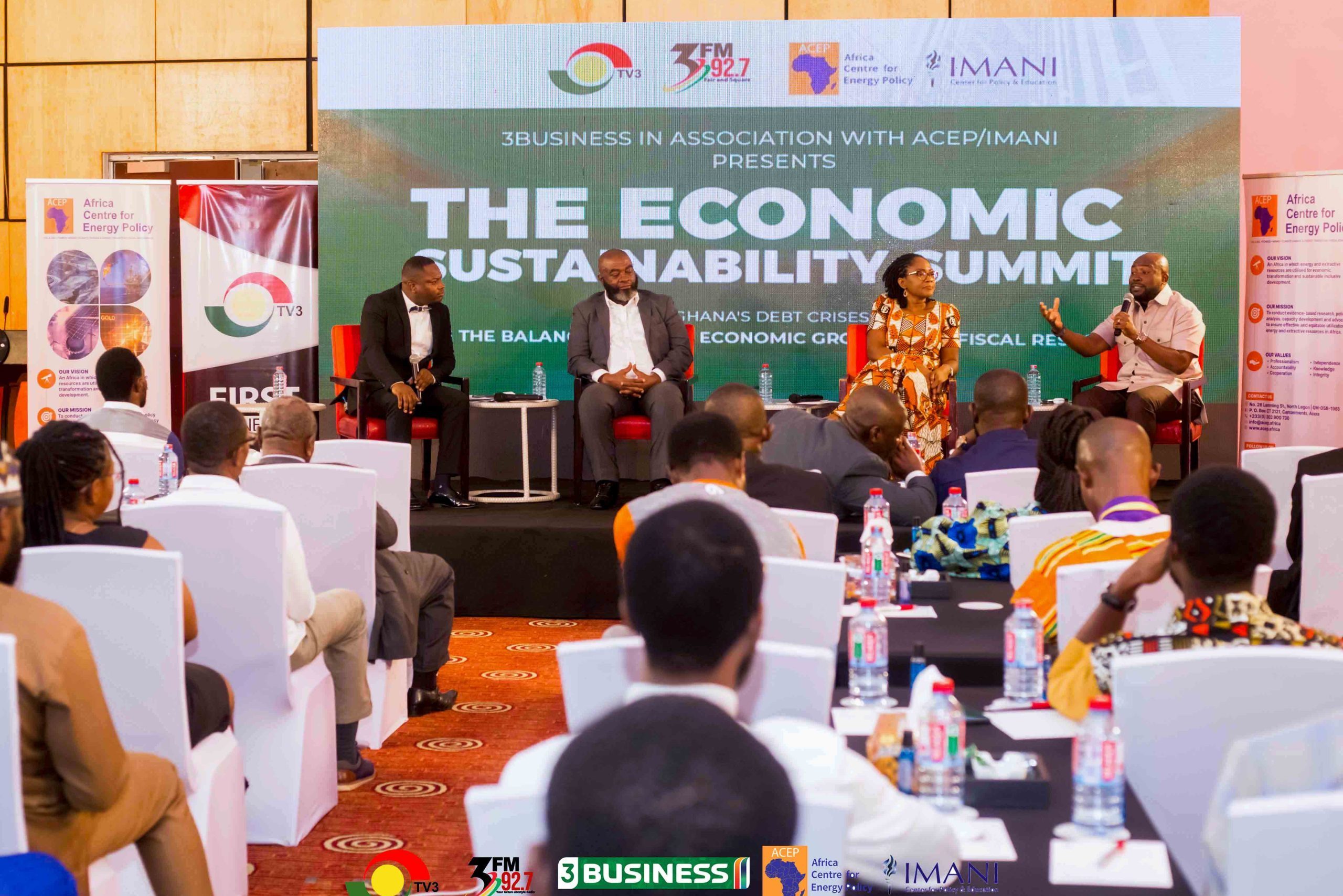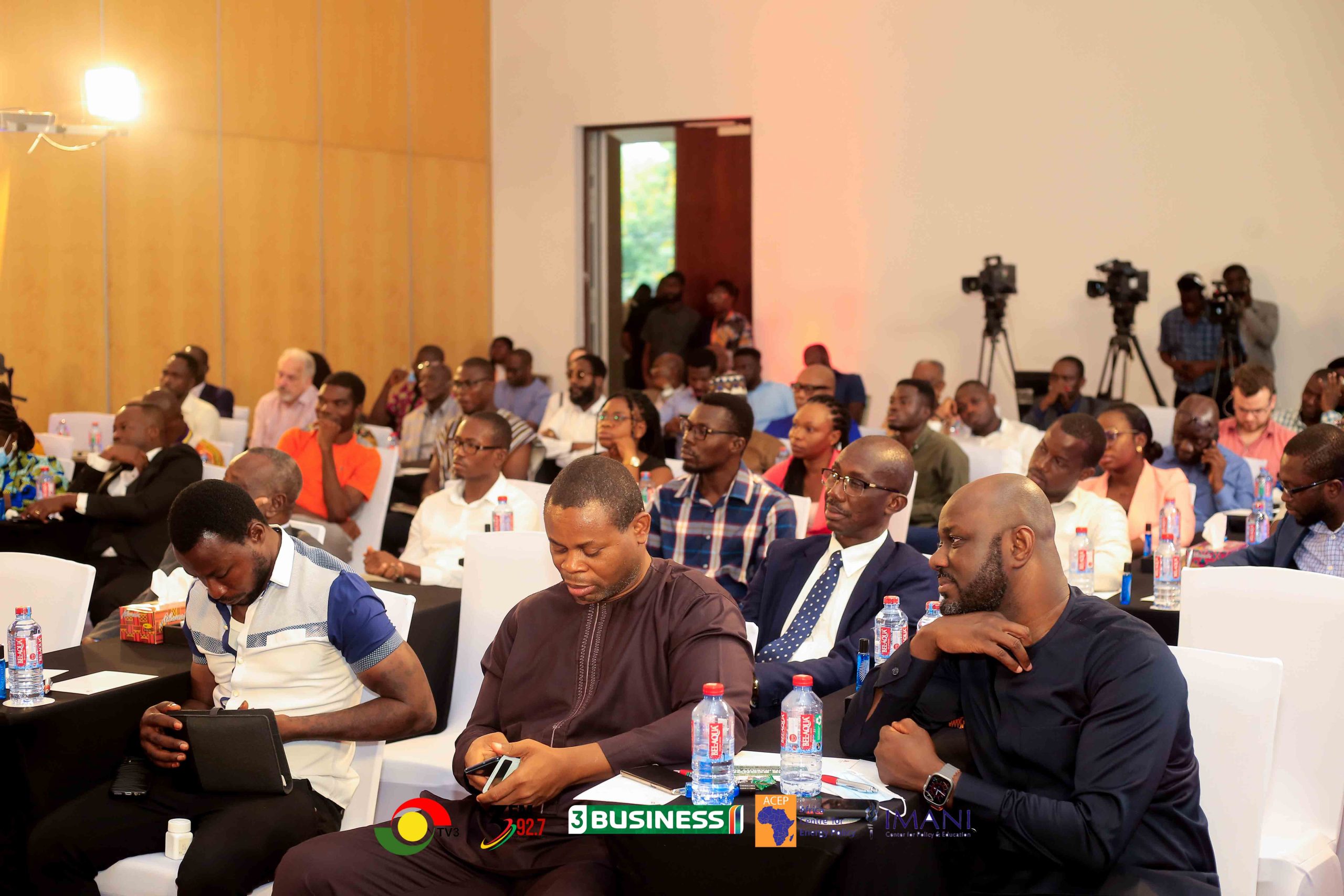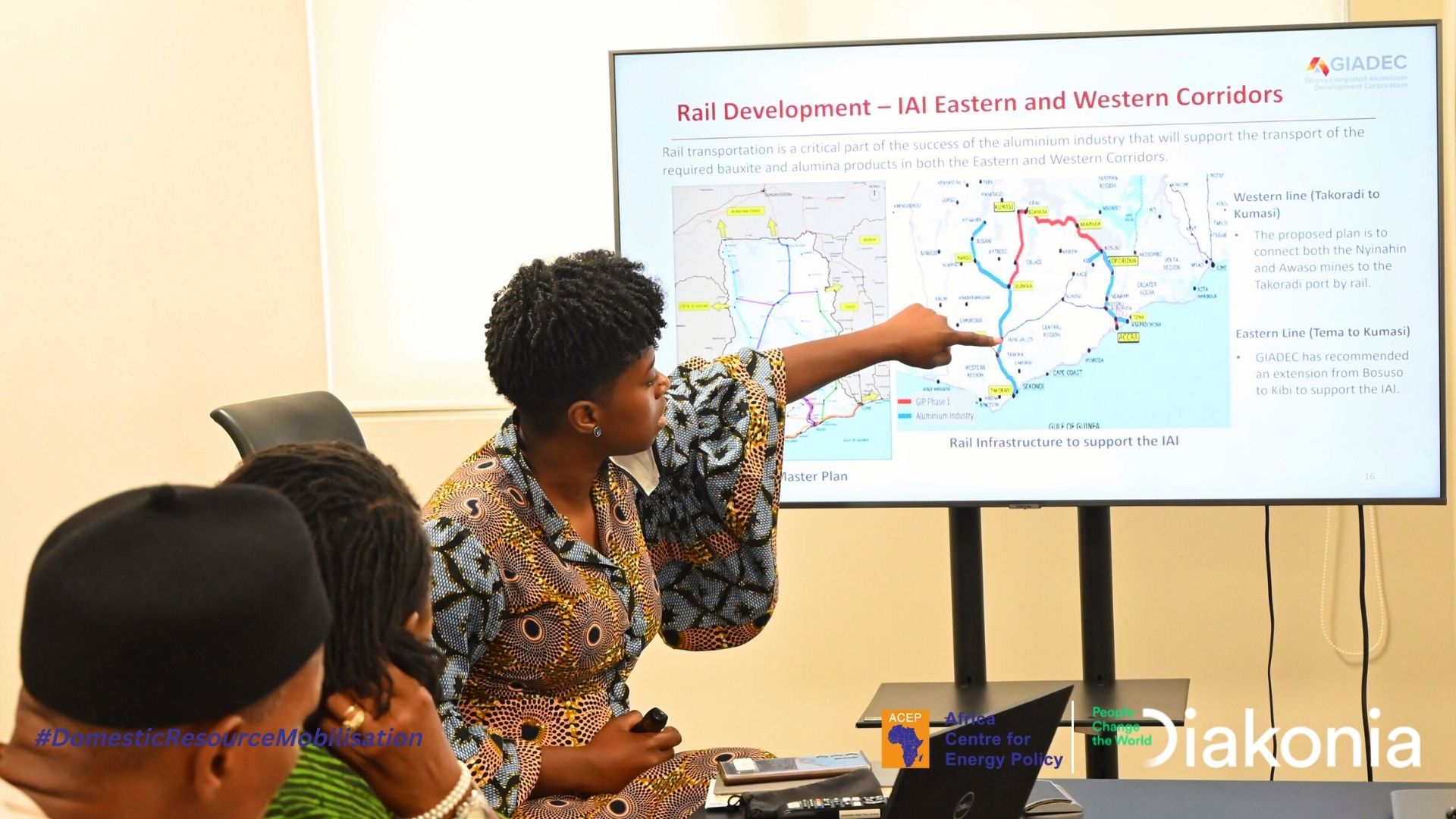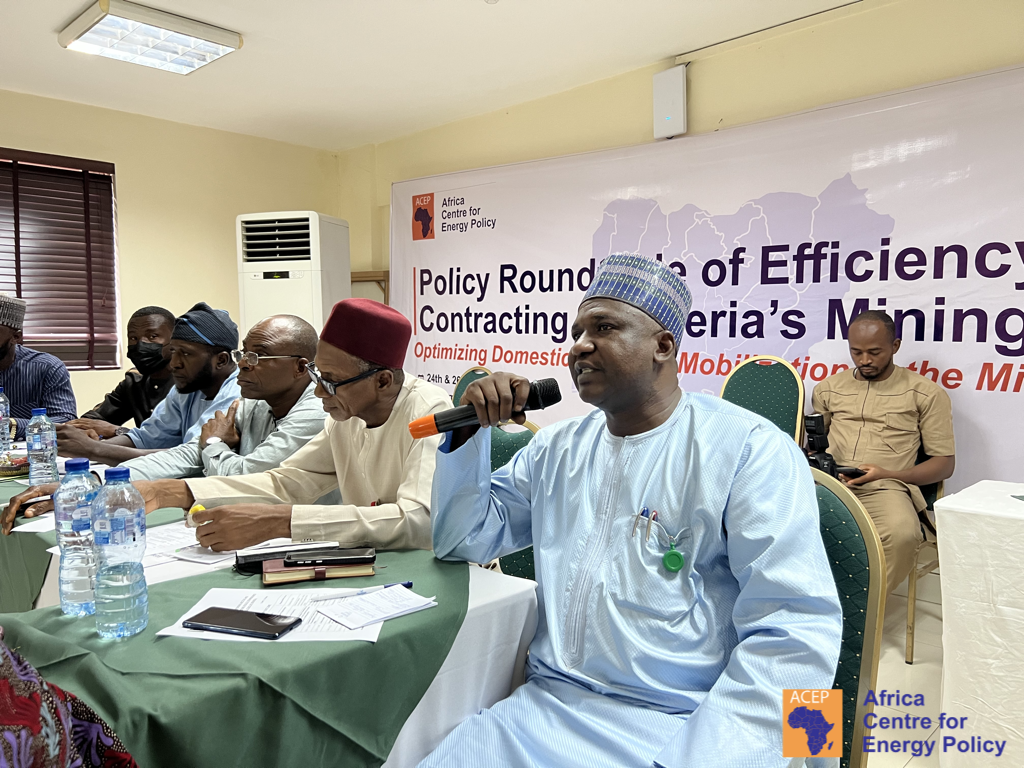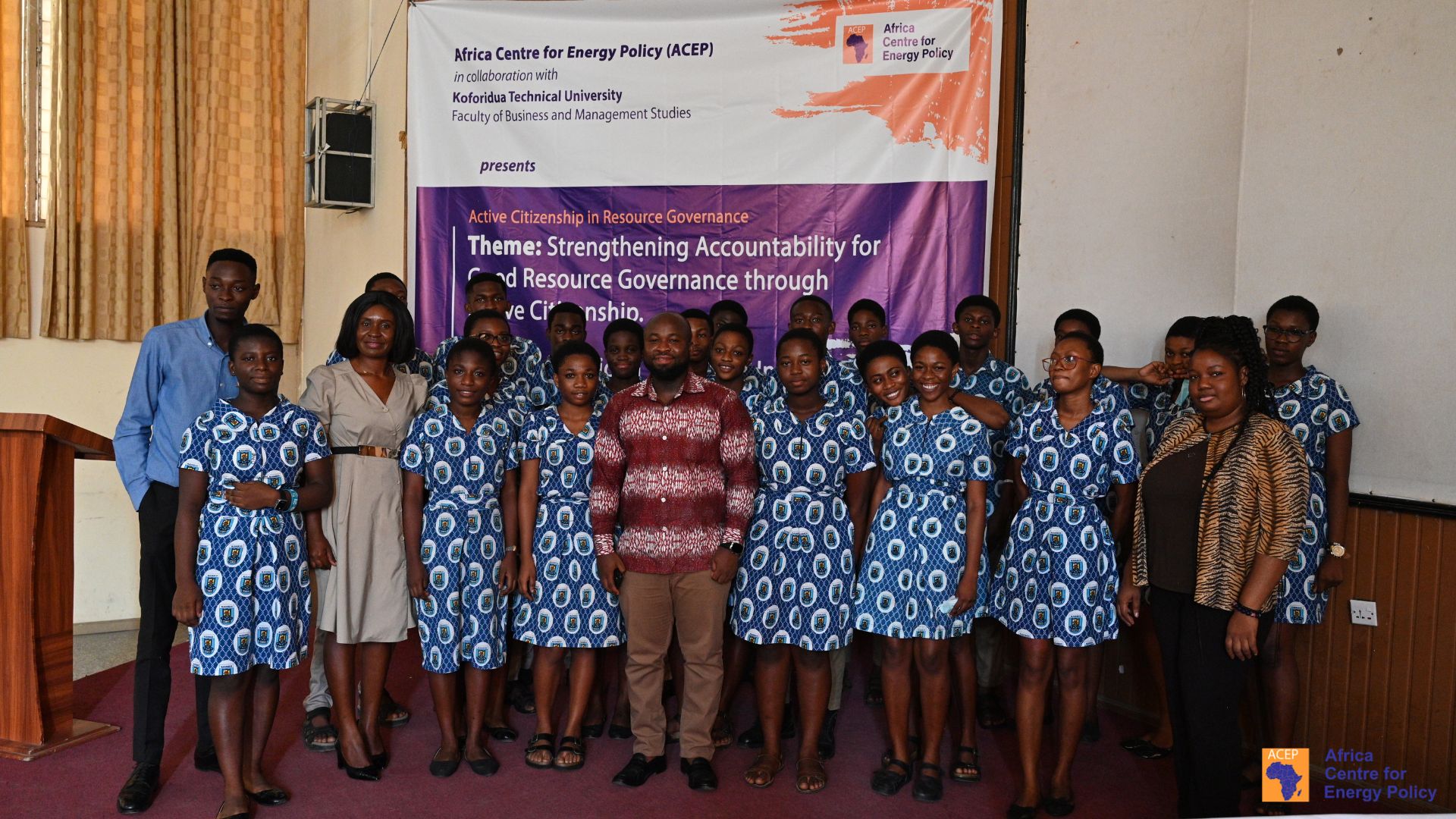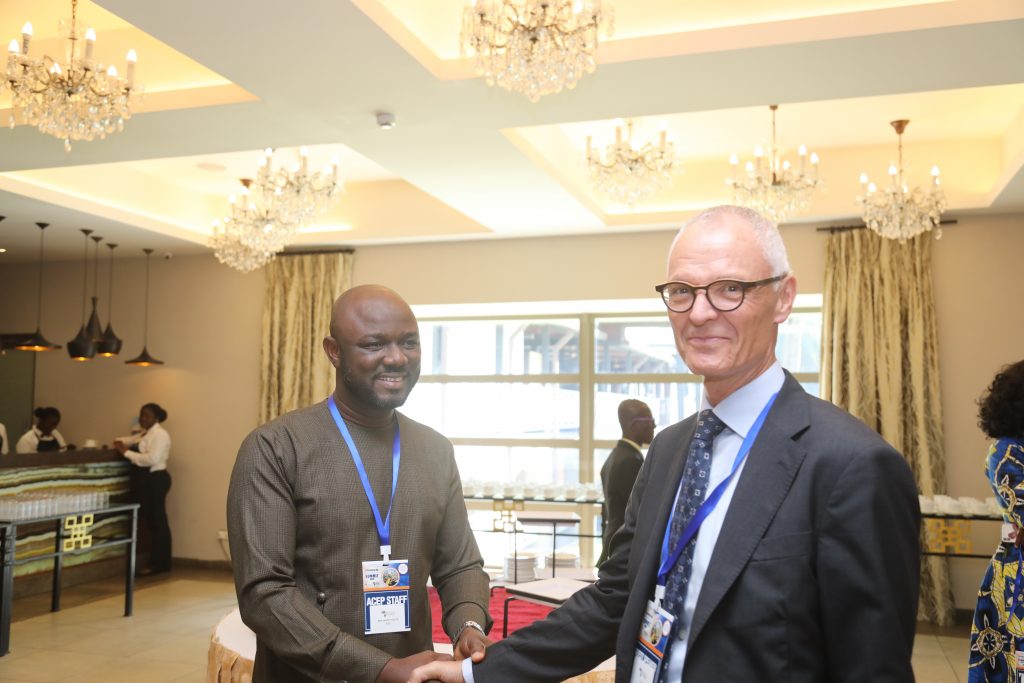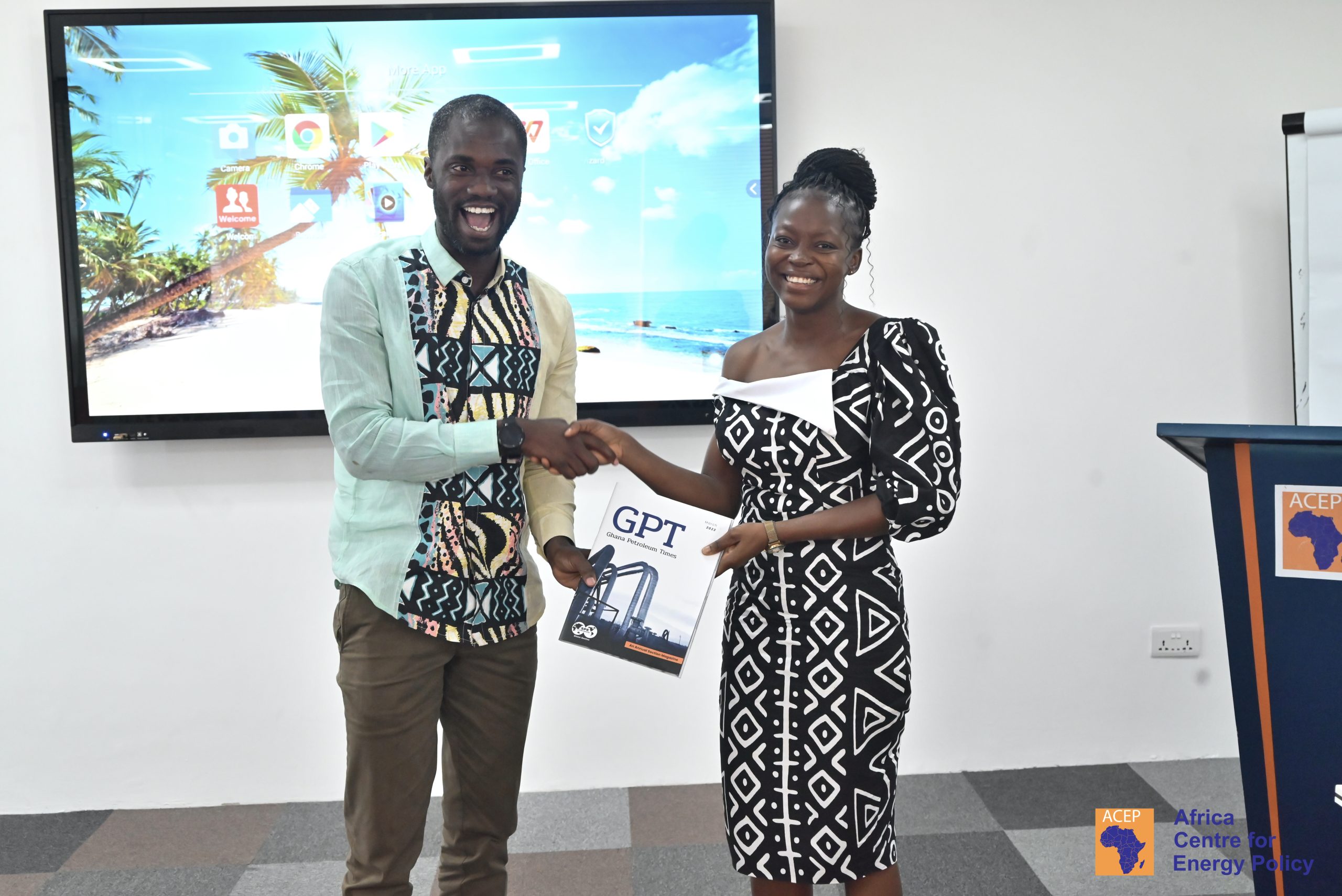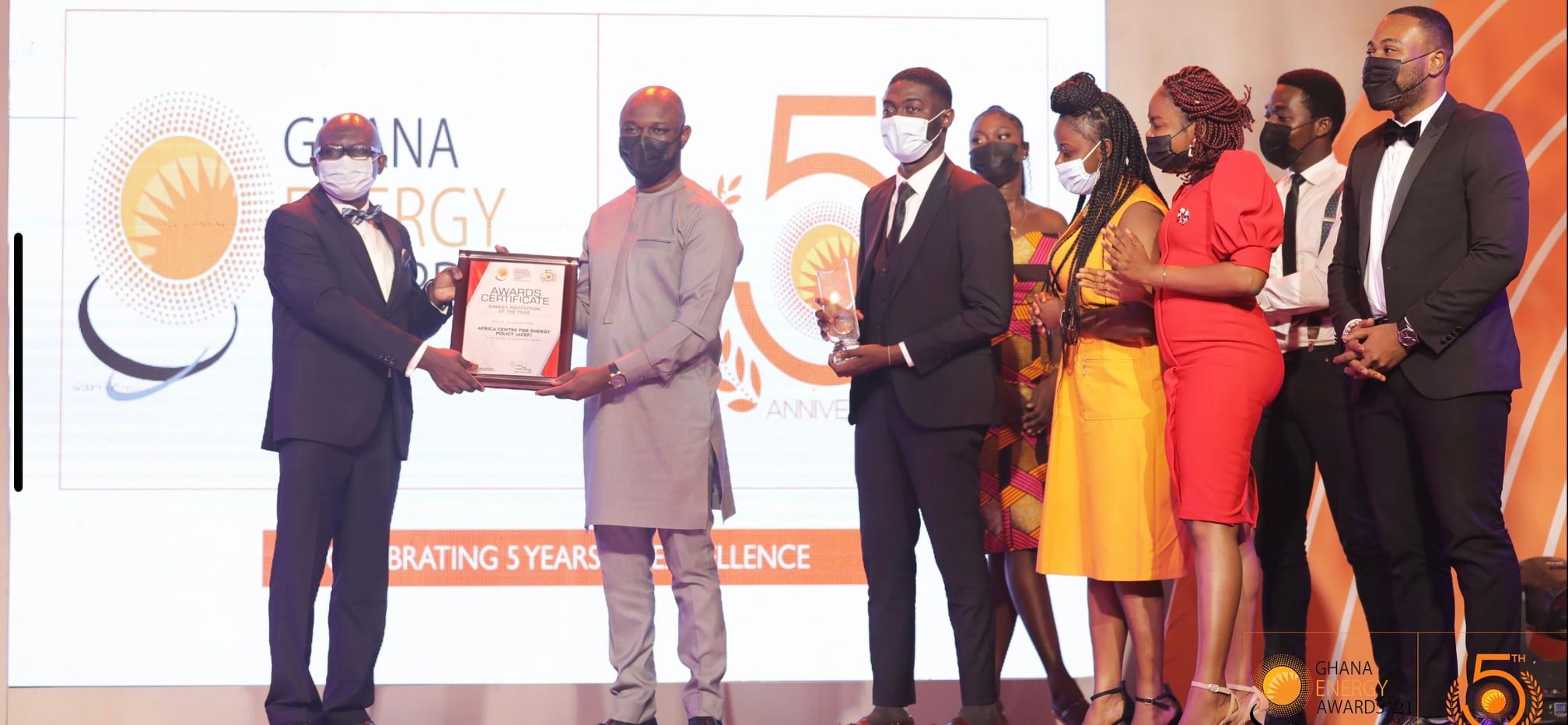
Walking The Inclusion Talk - ACEP Leads The Way
There is an estimated number of 900,000 people living with disabilities in Ghana. This means that an estimated 3% of the population suffer some form of disability. This number is likely to increase as the population ages and the prevalence of chronic conditions which create impairment and disability rise. This is why an equitable and inclusive distribution of national wealth remains a critical element of any sustainable development agenda.
Indeed, the 1992 Constitution of Ghana, the National Disability Policy, the Persons with Disability Act (Act 715), the Labour Act (Act 651), as well as other international conventions to which Ghana has signed on to such as the UN Convention on the Rights of Persons with Disability, 2006; the African Charter on Human and People’s Rights; the African Decade of the Disabled 2000-2009; and the Sustainable Development Goals (SDGs), all recognize the rights of PWDs. These international and national conventions, policies, and laws provide for the protection and equal treatment of PWDs as well as their integration into society through the provision of an enabling environment and the right infrastructure.
In spite of the above, the talk of inclusion in Ghana is far from becoming a true, conscious walk..!
Persons with disability face exclusion across several sectors; in access to health care, education, economic activities, political leadership, decision making, access to information and opportunities in particular. Recent estimates show that four out of ten PWDs aged three years and above have no formal education; whilst 17.4% have had some form of primary school education.
In a quest to provide comprehensive information on Disability Issues in Ghana and in line with its Diversity, Gender and Inclusion drive, the Africa Centre for Energy Policy (ACEP’s) has researched into the various interventions and policies within the disability space. Titled “EMPOWERING PWDs: A Mapping Report On Disability Interventions In Ghana”, the aim of the Report is to help enhance the conditions of PWDs in Ghana as well as identify key state and non-state actors working to address issues of PWD exclusion.
The Report provides information on the nature and scale of disability exclusion in Ghana. It maps out the various disability-inclusive interventions rolled out over the years and identifies how effective they have been. Overall, the Report seeks to ensure that government and donor spending within the disability space are prioritized, made more equitable and results in the greatest possible impact for PWDs.
Methodology & Scope
The research used the exploratory qualitative approach. By this method, the views of respondents within the disability space were purposively sampled. These respondents were drawn from national and regional state institutions, non-state actors (non-governmental organizations) and disability groups.
The World Health Organization’s (WHO) Community Based Rehabilitation (CBR) framework was adopted as a guideline for categorizing interventions aimed at realizing the full inclusion of PWDs. The various interventions were thus, categorized across the sectors of health; education; livelihood and employment; social inclusion; empowerment, advocacy and governance.
Respondents
A total of 81 respondents were interviewed across the 16 regions of Ghana. These respondents are key stakeholders responsible for ensuring the inclusion of persons with disabilities. The stakeholders were drawn from National State Institutions, Regional Coordinating Councils, Regional Health Directorates, Regional Education Directorates, Regional Social Welfare Departments, Development Organizations (NGOs and Donors working on disability), and disability groups and associations.
Findings
The Report brought to bare, the following findings:
On Health, the study found that there are no key interventions targeted at pregnant women and children with disabilities in terms of their access to maternal and child health care. It was revealed, however, that the most widespread intervention to prevent illnesses that cause disability is polio immunization.
Again, while the law provides for physical accessibility to all public spaces including hospitals and other health care centres, the evidence on the ground showed this is not being implemented in several health facilities. This poses a challenge to PWDs in accessing health services across the country.
In critical areas needing attention, the study revealed that some forms of disability such as the blind, deaf and persons with autism are generally recognized, as opposed to Persons with Albinism and midgets who came up as groups of PWDs often ignored as far as health issues are concerned.
In terms of Education, the report indicated that though the government is operating an inclusive education policy, the implementation has not been as inclusive as would be desired. Children with intellectual disabilities and other developmental challenges still face barriers to accessing inclusive education.
Again, all the special educational institutions serving different kinds of PWD needs across the country are all concentrated at the basic level. This gives PWDs limited transitioning opportunities for higher-level education. According to the study, there is only one secondary school for the deaf at Mampong in the Ashanti Region, which admits about 250 students per year and two schools for the blind nationwide, located at Wa and Akropong in the Upper East and Eastern Regions respectively.
The Report highlighted technical and vocational education and training as critical areas needed for the economic empowerment of PWDs, as well as the education of persons with intellectual disabilities and developmental challenges as the groups of PWDs who have been ignored in educational interventions across the country.
The study revealed that Employment and Livelihood Opportunities, in general, remain a great challenge for PWDs. Participants mentioned the non-existence of public sensitization on the need for PWDs to be given a fair chance in job opportunities, employment in the state security services, and the need to foster a good working relationship between the general public and PWDs, as some areas that have received little attention.
Although several initiatives such as the establishment of Rehabilitation Centers, implementation of the Community-based Rehabilitation Program, and the disability grant (which consists of 3% of the District Assemblies Common Fund), have been put in place to support the livelihoods and economic empowerment of PWDs, more needs to be done to properly integrate PWDs as far as access to employment and livelihood empowerment are concerned. There also exists a major challenge in access to financial services, loans, grants and credit facilities since most banking and financial processes are not disability friendly.
The Livelihood Empowerment Against Poverty (LEAP) programme and the National Health Insurance Scheme (NHIS) were cited by respondents as key interventions implemented by the state which is helping to eliminate poverty and providing affordable health care for PWDs, respectively.
The Report further outlined Persons with Albinism, the deaf, people with mental health conditions, as well as those with intellectual disability and developmental challenges as groups of PWDs who require more attention in the area of employment and livelihood support.
In the area of Social Inclusion, respondents commended the National Sports Authority (NSA) for its efforts at helping to develop PWD interest in sports. Through its work, the NSA has developed Ghana’s PWD Teams which participate in international Paralympic events. Additionally, Special Olympics, a global disability organization, provide year-round sports training and athletic competition in a variety of Olympic-type sports for children and adults with intellectual disabilities and developmental challenges in Ghana.
Some areas identified for attention in terms of social inclusion for PWDs included the need to provide access to public facilities.
On Political Participation of PWDs, the Report indicated that government has put in place a framework towards Disability Mainstreaming in Metropolitan, Municipal and District Assemblies (MMDAs). This mandates the reservation of a percentage of general assembly membership of MMDAs for the nomination of PWDs. Again, the Electoral Commission (EC) organizes sensitization programmes and workshops to give the leadership of the various associations within the Ghana Federation for Disability Organizations ample information on various activities during electoral cycles. This information is later disseminated to their respective members.
A number of measures have also been put in place by the EC to ensure that PWDs fully take part in the electioneering process. These include inclusive registration, inclusive voter education and information, preferential treatment from long queues, site selection of polling stations for accessibility, redesign of the polling booth for inclusive voting, tactile ballot jackets for Visually Impaired Voters among others.
The study revealed that persons with intellectual disabilities and developmental challenges are ignored in the pursuit of citizens’ right to vote and be voted for, as far as political participation of PWDs is concerned.
Challenges
The Report came up with several factors which impede the successful implementation of inclusive PWD interventions in Ghana. These are as follows:
Inadequate funds
Stakeholders believe the government has a lot of programs that can positively impact the lives of PWDs. However, these interventions are poorly funded. Also, there is always a delay in the disbursement of the disability fund in the various MMDAs. In some instances, it does not come at all. Again, in instances where the funds are disbursed, they are often misapplied by district assemblies because monitoring from both state and non-state actors are weak.
Limited involvement of PWDs in the Policy Process
Limited or non-involvement of PWDs in the entire process of national policy formulation is the second most mentioned challenge after limited funding. This limits the extent of mainstreaming of PWD issues in the policy design process.
Poor Implementation Plans
While bemoaning the inadequacy of policies, respondents indicated that the few policies in existence are poorly implemented. They assert that there is no proper implementation plan that guides government agencies on PWD related policies. This creates significant discretion without necessary controls for economic, efficient and effective utilisation of the resources.
Limited Research and Development into Disability Issues
At the various district and regional levels, interventions on the utilization of disability grants vary. However, there is no research to inform the choice of specific interventions which are appropriate, based on relevant justifications, before being implemented. The absence of research makes the choice of determining interventions discretionary at the local level.
Recommendations
On the way forward towards enhancing PWD inclusion at all levels, the Report made the following recommendations:
Timely Release of Budgetary Allocations
The Report implores government to ensure that budgetary allocations to the various MMDAs are released on time so that what is due PWDs can be accessed on time and complemented with the proper supervision of funds disbursement to deter the assemblies from discretionary expenditure.
Participatory Decision-Making on Disability Policies
Since PWDs are the ultimate beneficiaries of the policies targeted at them, they must be included in the policymaking process. The design of interventions should have the active participation of PWDs from the conception stage through to its implementation and subsequent evaluation.
Properly Planned Implementations
To resolve the general concern about poorly planned implementations, it is recommended that such interventions are piloted and pre-tested before they are scaled up so that setbacks or loopholes are identified and mitigated.
Improved Research on Disability Issues
There is the need for improved research to understand the issues of disability and the appropriate mitigation interventions.
Collective Mindset Towards Addressing PWD Issues
Both state and non-state actors have to aggressively participate in shaping mindsets and stereotypes in the Ghanaian society, so as to create the needed change and enhance the integration of PWDs into society.
Access to Information
Governments and non-state actors should deepen efforts at providing public information and PWD-specific information in accessible formats and the required assistive services in public places like hospitals, schools among others.
It must be noted, in conclusion, that no nation can develop by neglecting any segment of its human capital base. Inclusion of all persons, including PWDs, must be a top national concern. This is what makes this Report, a crucial step towards walking, the inclusion talk.

